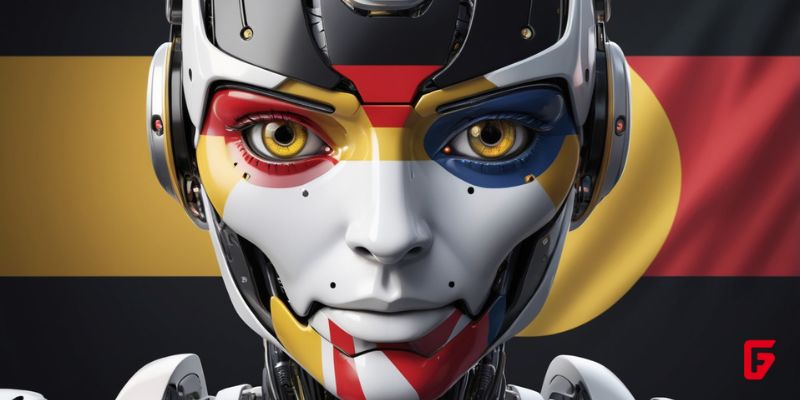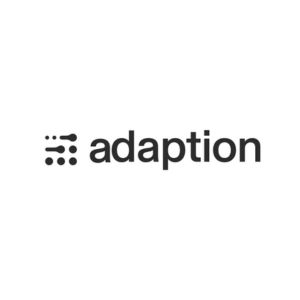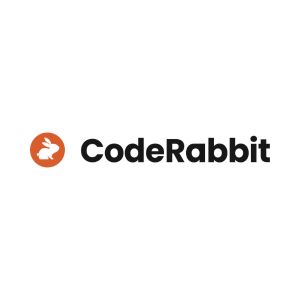Startups & Business News
PlayerZero’s $15M Milestone: Building the Immune System for AI-Written Code
KEY POINTS
PlayerZero raised $15 million to build technology that detects and prevents bugs in AI-generated code before it reaches production.
The startup acts as an “immune system” for large enterprise codebases, learning from historic bugs and system behaviors to preemptively fix recurring issues.
Backed by industry leaders, PlayerZero’s customer list includes major enterprises like Zuora, which uses it to safeguard mission-critical billing systems.
Competitors like Anysphere’s Cursor have launched similar tools, but PlayerZero stands out by tailoring solutions for large and complex codebases.
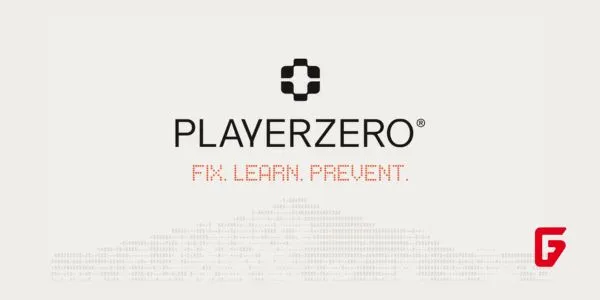
The Invisible Risk of AI Programmers
AI is transforming the software development world. From Google to Microsoft, and even startups, as much as 95% of code can now be AI-generated. This progress brings incredible speed and cost savings—but it has unleashed a new, critical challenge: unseen bugs hidden in machine-written code. Mistakes that once trickled in with traditional development now flood in as code is created at unprecedented speed.
PlayerZero, a Palo Alto-based startup founded by Animesh Koratana, who shaped his vision during his research stint at Stanford’s DAWN lab under Databricks’ Matei Zaharia. Noticing the growing volume and complexity of bugs injected by AI code generators, Koratana developed PlayerZero to function as a proactive shield for modern engineering teams.
How PlayerZero Works: Engineering an Immune System for Code
Instead of waiting for issues to appear in production, PlayerZero applies AI to deeply analyze an enterprise’s historical bugs, defect patterns, and architecture. Its technology, called CodeSim, “simulates system-wide behavior to catch issues that would have otherwise slipped through the cracks,” allowing teams to predict and prevent failures before deployment.
The technology maps how bugs have emerged and been fixed, then increasingly automates learning from each new incident. The result? Customers like Zuora report an 80% drop in support escalations and a 90% reduction in investigation time, as PlayerZero proactively triages—sometimes even repairs—bugs before they affect end users.
PlayerZero’s platform stands out for:
Understanding multi-repo, multi-language codebases and their architectures.
Drawing on telemetry, customer tickets, and runtime context—not just the code itself.
Providing instant, context-aware explanations and feedback on each code change.
The Funding Surge and the “Big Deal” Moment
Backed by Foundation Capital’s Ashu Garg, who saw parallels to the early days of Apache Spark and Databricks, PlayerZero attracted a star-studded list of angels from the likes of Dropbox, Figma, and Vercel. A breakthrough demo with Vercel’s Guillermo Rauch helped cement industry faith that this approach was not only innovative but deeply practical.
With this $15 million Series A (and $20 million raised total), the company is primed to expand its research team and bring these tools to a broader swath of enterprises—right as AI-written code approaches a tipping point in the industry.
Not Alone: The Race to Secure AI Code
PlayerZero isn’t the only player in this growing segment. Competitors like Anysphere’s Cursor and Bugbot are also racing to detect coding errors at scale, but PlayerZero has carved a niche in monitoring vast, mission-critical code environments. As AI coding assistants reshape software, the ability to simulate, predict, and immunize against machine-introduced bugs will determine which platforms lead the way.
The Road Ahead
With artificial intelligence (AI) set to generate more enterprise code than humans, the stakes have never been higher. “We’re creating a fundamental mismatch: code that takes seconds to generate but hours to debug,” remarks Ashu Garg. PlayerZero’s immune-system approach reframes the challenge—not as a quality-control afterthought but as essential infrastructure for tomorrow’s software.
In the relentless pace of the AI era, catching invisible bugs before they bite will set tomorrow’s tech winners apart. PlayerZero’s journey signals that in a world where machines write code, the smartest engineering teams will harness even smarter defenses.

futureTEKnow
Editorial Team
futureTEKnow is a leading source for Technology, Startups, and Business News, spotlighting the most innovative companies and breakthrough trends in emerging tech sectors like Artificial Intelligence (AI), Robotics, and the Space Industry.
Discover the companies and startups shaping tomorrow — explore the future of technology today.
Most Popular
Trending Companies
Latest Articles

Dwelly Raises $93M to Supercharge AI-Powered UK Rentals Roll-Up
London startup Dwelly just landed $93M to snap up UK rental agencies and inject AI smarts. Founders from Uber and

Encord Raises $60M Series C: Fueling Physical AI Data Wave
Encord just landed $60M in Series C funding to supercharge data tools for physical AI. Founders Eric Landau and Ulrik

Foodforecast Raises €8M Series A to Slash Ultra-Fresh Food Waste with AI
Foodforecast, a Cologne AI foodtech firm, just scored €8M in Series A funding led by SHIFT Invest. Their tools predict

AI-Driven Operational Excellence: How Leaders Scale Ownership, Discipline, and Continuous Improvement in 2026
In 2026, AI scales operational excellence fundamentals—clear ownership, disciplined execution, and continuous improvement—letting leaders focus on outcomes while systems handle

VoiceLine raises €10M to scale voice AI for enterprise frontline teams
Munich-based VoiceLine has closed a €10M Series A round to grow its voice AI platform for frontline sales and service

AI-Driven Logistics & Distribution Transformation: From Insight to Scalable Impact
AI is redefining logistics transformation—from network design to real-time execution. This article explores how data-driven insight, intelligent automation, and scalable
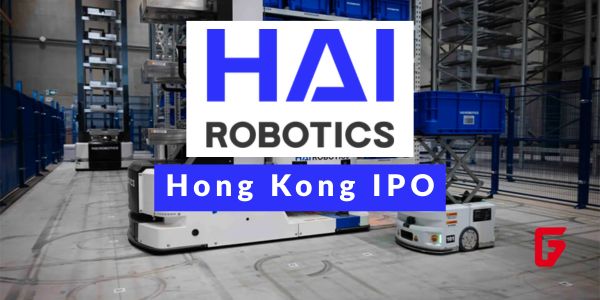
Hai Robotics Hong Kong IPO: From Startup Funding to Warehouse Robot Leader
Shenzhen’s Hai Robotics, pioneer in ACR warehouse robots, files for HK IPO after raising over $500M in funding rounds led

AI-Enabled Process Engineering & Continuous Improvement: Designing Systems That Learn
Explore how AI transforms process engineering and continuous improvement into self-learning systems. This article explains how organizations can design operations
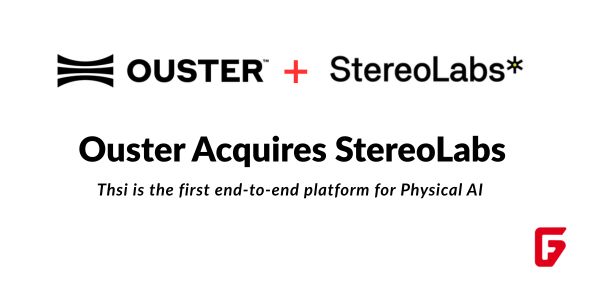
Ouster Acquires StereoLabs: Unified Physical AI Sensing Platform Launches
Ouster’s $35M StereoLabs acquisition fuses lidar and ZED cameras into end-to-end Physical AI sensing. Founders Cecile Schmollgruber and team drive

Bretton AI Lands $75M Series B Funding to Scale AI Agents for Financial Crime and AML/KYC Compliance
Bretton AI’s $75M Series B modernizes AML KYC compliance via AI agents, slashing staffing costs for banks and fintechs like

Axiom Space Raises $350M to Build Commercial Space Station and NASA Spacesuits
Axiom Space has locked in a fresh $350M raise to push its commercial space station and NASA lunar spacesuits toward

Santé Raises $7.6M Seed: AI Fintech Revolution for Wine and Liquor Retail
New York startup Santé secures $7.6M seed to build AI-powered POS for liquor stores, tackling regs & inventory woes after
futureTEKnow is focused on identifying and promoting creators, disruptors and innovators, and serving as a vital resource for those interested in the latest advancements in technology.
© 2026 All Rights Reserved.
![Discover the top 10 AI companies in Germany [1st Edition], revolutionizing industries with cutting-edge technology and innovations.](https://futureteknow.com/wp-content/uploads/2025/02/Top-10-AI-Companies-in-Germany-Leading-the-Tech-Revolution-futureTEKnow.jpg)
